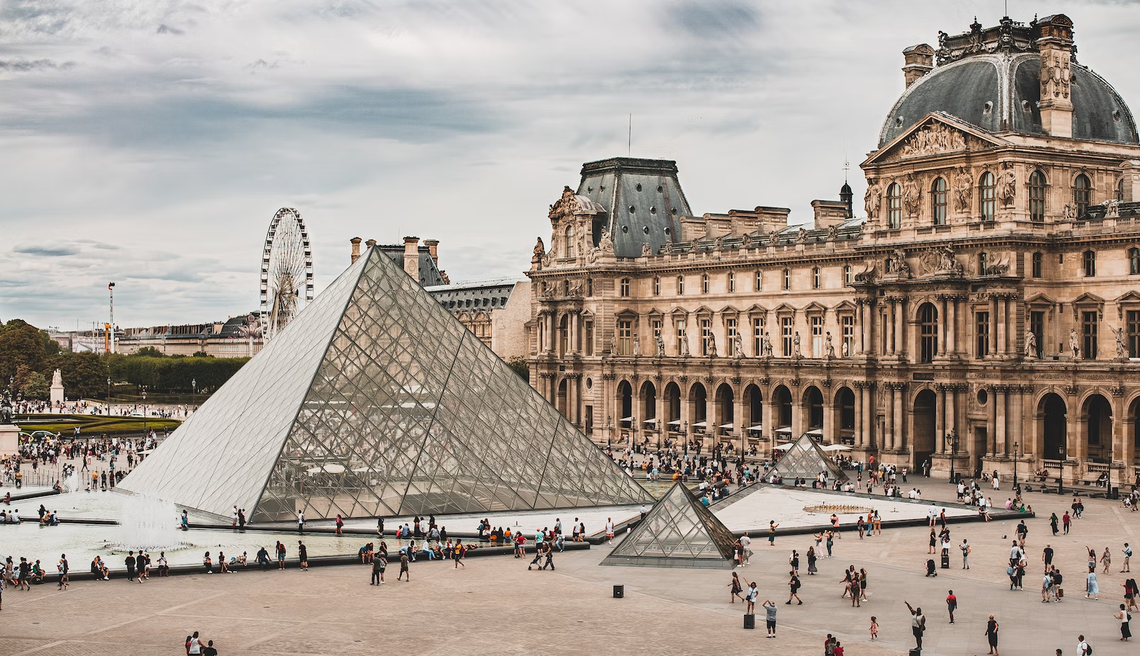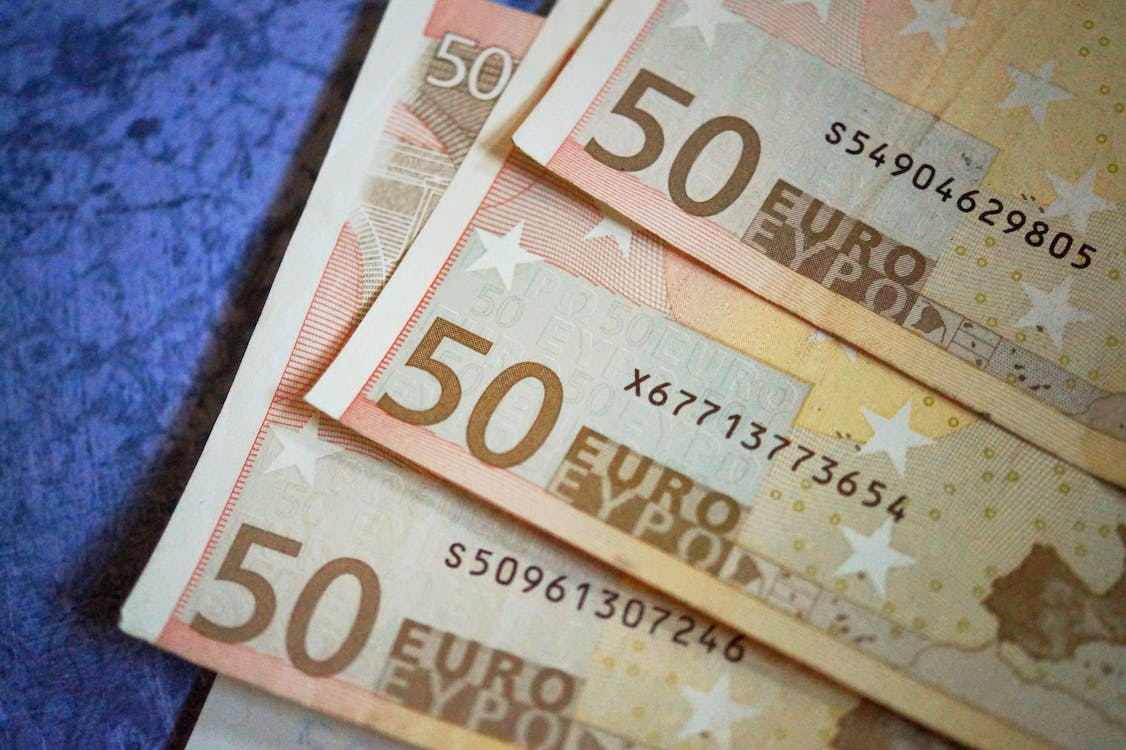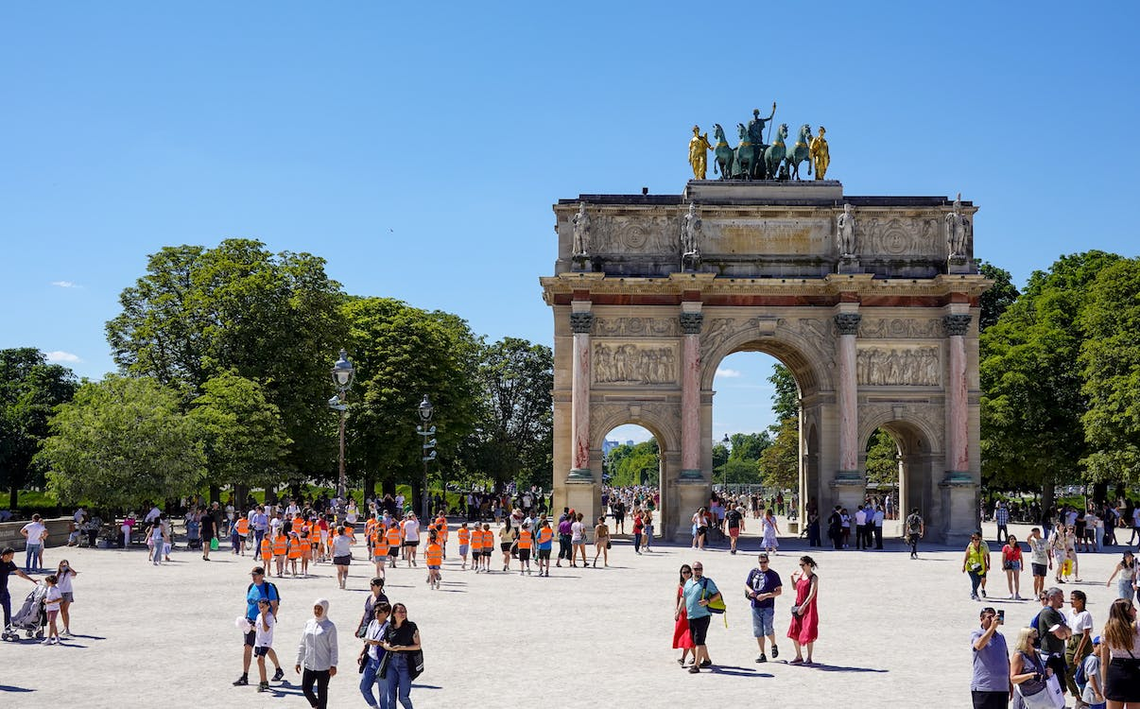Apply to a foreign university with confidence
- Properly fulfilled documents
- Perfect motivation letter
- Support from a personal mentor
- Offers from several universities
Foreigners can apply to French universities under the same conditions as nationals. The opportunity to enroll directly after high school, a lack of entrance exams, and a high admission rate — these factors make the admission process easier for foreign applicants and distinguishes France from its neighbors.
Free consultation






Foreigners can apply to French universities under the same conditions as nationals. The opportunity to enroll directly after high school, a lack of entrance exams, and a high admission rate — these factors make the admission process easier for foreign applicants and distinguishes France from its neighbors: Germany, Spain, and Italy.
Items 1-6 of 915
Advanced searchWhile public universities are free, they have fixed registration fees (frais d'inscription).
| Level of education | Price |
|---|---|
| Bachelor’s (Licence) | 3,130 USD/year |
| Master's (Master) | 4,260 USD/year |
| Doctorate (Doctorat) | 429 USD/year |
Choosing a university in France is challenging, especially when you realize that Sorbonne is not the only option. In total, there are four key criteria:
A complete list of study programs at public universities is available on Campus France.

| Program | Min. age | Duration | Min. cost | Avg. cost | Min. Language level | English exam | French exam |
|---|---|---|---|---|---|---|---|
| Prof. Education — BUT | 18+ | 3 years | 192 USD/year | 192 USD/year | B2 | IELTS 5.5 | DELF B2 |
| Preparation for grandes écoles — CPGE | 18+ | 2-4 years | 192 USD/year | 2,260 USD/year | B2 | IELTS 5.5 | DELF B2 |
| Bachelor's — Licence | 18+ | 3 years | 3,130 USD/year | 11,300 USD/year | B1-B2 | IELTS 5.5 | DELF B2 |
| Master's — Master | 21+ | 2 years | 4,260 USD/year | 13,560 USD/year | B2-C1 | IELTS 5.5-7.0 | DALF C1 |
| MBA | 21+ | 10-16 months | 43,505 USD/year | 63,279 USD/year | C1 | IELTS 7.0 | DALF C1 |
| Doctorate — Doctorat | 23+ | 3-5 years | 429 USD/year | 6,780 USD/year | C1 | IELTS 7.0 | DALF C1 |
French. To confirm your French proficiency, it is necessary to pass the DELF/DALF or TCF exam. For admission to the first year of study, a B2 certificate is sufficient. Subsequent years of study require a C1 level of proficiency.
English language. French universities offer study programs in English, with most being available at business schools and public universities. Most often, these are master’s programs in the exact and natural sciences, or management and economics. To confirm your knowledge of English, you must provide a B2-C1 IELTS / TOEFL certificate. Both certificates are valid for two years.
France adopted the 1961 Hague Convention. If your country is one of the Contracting Parties, an apostille is required. After this you need to translate the diploma into French and notarize it.
There are no official entrance exams at French universities. However, this does not apply to higher schools (grandes écoles) and certain faculties. They evaluate the knowledge of a student in specific areas. For example, humanities students are tested on their knowledge of French, the intended area of study, and sometimes history or geography. Engineering students take mathematics, English or French exams, along with a specialization test. The higher the university ranking, the more difficult the entrance exams — for instance, those applying to the École Polytechnique start preparing at least a year in advance.
A bachelor’s degree in France is called a licence. Programs last three years. All applicants who have completed their upper secondary education in France (baccalauréat) or its equivalent in another country can apply for study. No university preparatory courses are required for those who have graduated from the 11th grade. The only condition is that students under 18 must find a guardian with French citizenship.
Students from most countries apply with Campus France. Admission procedure depends on your nationality and country of residence. There are four categories of applicants:
Applications are accepted from October to January. If you apply on the Parcoursup platform, deadlines are from December to March. The exact dates change from year to year. Information for public universities, architectural and medical schools can be found on Campus France, and for private universities — on their official websites.
Not all universities are connected to the Campus France platform. In this case, the application is submitted through the university website.
For admission to a French state university, the applicant must provide:
Master’s (master) programs in France last two academic years. Documents are submitted to state universities through Campus France. Some of them conduct entrance tests: exams, interviews, or research presentations. Sometimes, a letter is required from a prospective supervisor for whom the student is planning to write a final thesis (le mémoire). French universities evaluate the student’s qualifications and document legalization on an individual basis.
The candidate cannot change his field of study upon acceptance into a French master's program. He can only continue studying the same subject in which he obtained his bachelor's degree.
For admission to a French university, the applicant must provide:

CPGE (Classes préparatoires aux grandes écoles) or classes prépas are special two-year preparation courses for higher education. Students enroll in such programs after receiving a baccalauréat or its equivalent. According to statistics, no more than 10% of French graduates are enrolled in preparatory classes. The choice of classes prépas depends on the direction of study. There are three options:
There is no single admission procedure for CPGE: the criteria depend on the educational institution and specialization, but the applicant's performance in high school is considered the main one. An international student will also need a French language certificate and motivation letter. Applications are submitted through Parcoursup.
Two years of study through CPGE is equivalent to the first two years of licence (L1-L2). Students who do not get into grandes écoles can directly enter the second or third year of university.
Higher schools do not have a standardized admission procedure. The order and type of entrance examinations depends on the particular grande école. They may consist of exams, interviews, portfolio evaluations, or project defenses.
Virtually all grandes écoles only accept CPGE students. Exceptions are engineering and business schools: you can enter them without preparatory courses. At the same time, engineering schools require you to have a sufficient background in physics and mathematics.
Applications are submitted through the official website of the university. The general set of documents includes:
Up-to-date information can be found on the website of the chosen university or on Conférence de grandes écoles.
Master’s programs at grandes écoles are called Mastère Spécialisé. The study duration, as at universities, is two years. The difference is that the curriculum of higher schools is directed at practical experience — for example, a mandatory requirement is an internship at a partner organization. Often, students do their bachelor’s study at a university, and then enroll in a master’s program at a grande école. This increases their chances of finding a good job after graduation.
60+ countries
we work with
$1,000,000 saved
by students through scholarships
6,400 offers
our students got